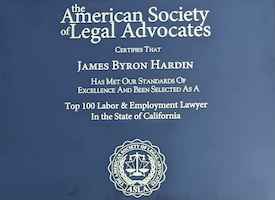Exceptions for Non-Compete Clauses in California
When an employee leaves a company, the employer often wants to try to ensure that the employee does not offer his or her services to competing or similar businesses. The most common (preemptive) step an employer will try to take is to include a non-compete clause in an employee’s contract, or attempt to have an employee to sign such an agreement in exchange for a severance package. However, some states have attempted to limit the reach or effectiveness of non-complete causes as a matter of public policy.
While many states will allow reasonable non-compete clauses in employment contracts, California expressly forbids them, save for a few limited circumstances. California Business and Professions Code section 16600 states in part that, “Every contract by which anyone is restrained from engaging in a lawful profession, trade, or business of any kind is to that extent void.”
The one exception to this California rule is when a business owner sells his or her interest in (or “goodwill” of) the business to another, the parties may agree that the selling owner can be restrained from carrying on a similar business within a specified geographical area, so long as the buyer actually carries on the business that is being bought. Even under these circumstances, the restrictions must be reasonable. Geographic restrictions or business characterizations that are defined too broadly will be in danger of being struck down by the courts when it comes time to enforce its provisions.
Also keep in mind that this exception only applies to those with an ownership interest in a business. Non-compete clauses will always be considered null-and-void in California when in comes to employees. Terminating an employee for refusing to sign a non-compete clause would likely be grounds for a wrongful termination suit.
Contractual clauses which protect “trade secrets” are still valid and enforceable in California, so long as the business reasonably defines their trade secrets and do not use the term to try and get around the prohibition against non-compete clauses. Former employees can be prevented from using specific information they gathered from their previous position to gain an unfair advantage for a competing business – but they cannot be prevented from working for a competing business altogether.
If you are a business owner or an employee, and you have questions about non-compete clauses, trade secrets or restraint of trade issues, contact a qualified and experienced business litigation attorney for assistance with any questions you may have. The attorneys at Hardin & Associates have substantial experience analyzing non-compete agreements.
Contact them today to learn more.





















